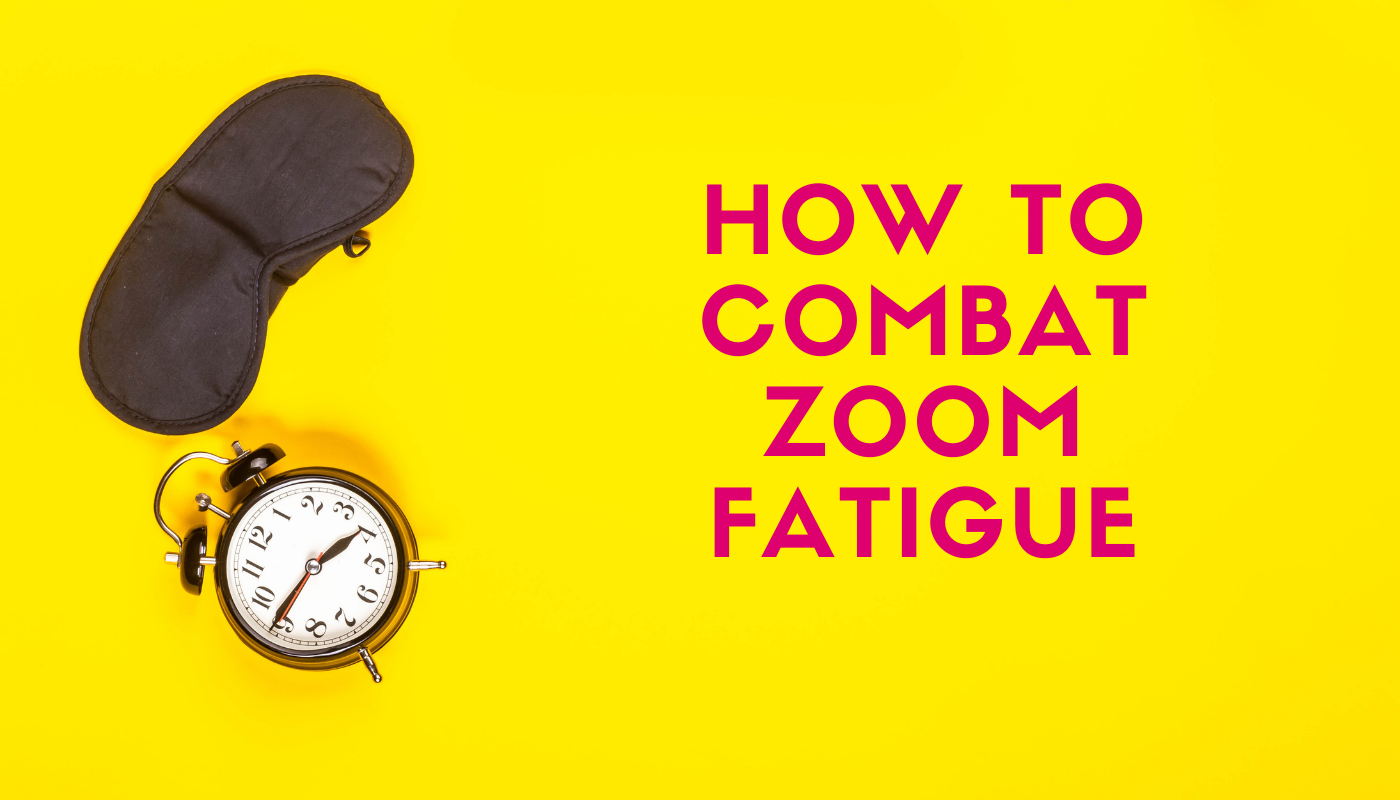Out of all the ‘new things’ that the Coronavirus pandemic has brought about (social distancing, lockdowns, and global remote working to name but a few), Zoom Fatigue has to be among one of the most frustrating effects. If you’re finding video calls exhausting and you’re barely managing to finish your day, you may be experiencing Zoom Fatigue. Here is what it is and how to overcome it.
What is Zoom Fatigue?
In short: ‘exhaustion caused by constant video calls.’ Although it’s not really an official diagnosis, psychologists have said that Zoom Fatigue is a real condition and that it is becoming increasingly prevalent in the era of remote working.
Why does it happen?
So what is it about video calls (whether on Zoom, Google or Skype etc) that makes us so tired?
Like most conditions, it comes down to a combination of factors:
- Video calls require more mental processing than face-to-face interactions.
- They force us to focus more intently on conversations in order to absorb information.
- Our brains have to work harder to process many of the non-verbal cues that we rely on in-person (body language, tone etc).
- Millisecond delays in audio can negatively affect our interpersonal perceptions.
- Staring at a screen and trying to hold direct eye-contact for minutes at a time without any visual or mental break is tiring.
- Seeing our own reflection makes us hyper-aware of our appearance and body language.
- Many people use this time to multitask or they get distracted by other tabs on their screen.
- Many of us are under additional stresses due to the pandemic (e.g. financial, health and/or family pressures) so we are already operating on our energy reserves.
How can I overcome it?
While you may be working from home and are having to participate in a lot of video calls (and there’s no avoiding this), there are a few things that you can do so that they aren’t as taxing. Here are a few things that you can try:
- Stop multitasking – trying to do something else at the same time as a video call (like checking your email) will only increase your fatigue, so avoid multitasking!
- Take breaks – you need screen-free time during the day so make sure to take breaks between meetings. If you can get outside, even better.
- Reduce on-screen stimuli – hide ‘self-view’ so that you’re not distracted by yourself on camera. Also close all other tabs, social media sites and your inbox.
- Make meetings shorter – if you really have to have a meeting, it doesn’t always have to be a long one. Try scheduling shorter time slots and make 30 minutes the default.
- Switch to phone calls or email – be honest with the person and say that you need a break from video calls, so would they mind a phone call instead. You might find they need the break too.
- Make virtual social events opt-in – while you may be organising virtual social events to bring your virtual team closer, always make them opt-in so that people who want to join can, but they are not obligated to.
- Set your own boundaries – start saying no to video calls that aren’t valuable. If someone wants a video call with you, give them other options to choose from.
- Schedule in ‘no meeting’ time blocks – your calendar can easily become overwhelmed with video calls, so block out some screen-free time to prevent this.
- Use technology to your advantage – we have so many ways to communicate, can you use What’s App or Loom to send a recorded/audio message instead of having a meeting?
- Practice mindfulness – breathing exercises, yoga or meditation can help you re-energise a little. Take a break throughout the day to find what works for you.
Don’t overexert yourself
Video calls can be really draining so don’t let them take over your day. Start by setting your own boundaries, prioritising yourself and how you wish to communicate, and schedule in screen-free time to recharge.
Everyone is trying to work at their best from home during such a difficult time, so if this means postponing a few video calls for your health, then do it!




